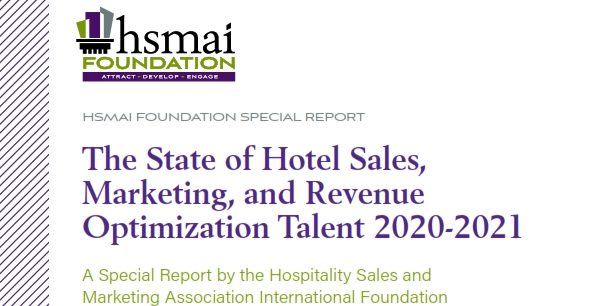By Karen Wollard, Ed. D., CHDM, HSMAI Research Manager
As a result of the pandemic, a renewed focus on mental health and well-being of talent emerged. As the entire world masked up, social distanced, or sheltered in place at home, hoteliers grappled with finding ways to keep those who were still working safe. Quite suddenly, employees were examining their job security, their physical safety at work, their fear of getting sick, their worries over being replaced by technology, and their long-term career prospects.
 New protocols were designed to keep people safe, while tight budgets and short staffs created stress, burnout, depression, insecurity, and fear. Wellness and mental health issues became essential considerations throughout the pandemic for those who remained in the workplace or transitioned to working remotely, as well as employees who had been furloughed or laid off.
New protocols were designed to keep people safe, while tight budgets and short staffs created stress, burnout, depression, insecurity, and fear. Wellness and mental health issues became essential considerations throughout the pandemic for those who remained in the workplace or transitioned to working remotely, as well as employees who had been furloughed or laid off.
Gallup’s State of the Global Workplace 2021 report discusses the effects of COVID-19:
- Seven out of 10 workers are struggling or suffering.
- 80% are not engaged or are actively disengaged at work — at a cost of nearly 10% of GDP in lost productivity each year.
- 40% reported daily worry and stress, while 25% reported daily anger and sadness.
These problems are not new — negative emotions at work have been rising over the past decade — but the importance of measuring and managing mental health and well-being of employees is more crucial now than ever before.
Creating a Good Place to Work
McKinsey’s Better Bosses report demonstrates that relationships with supervisors and/or managers are the No. 1 factor in employee job satisfaction, a major determinant of employee well-being. The research shows that 75% of those surveyed said the most stressful aspect of their job was their immediate manager. Focusing on employee happiness can improve overall life satisfaction, while potentially increasing profitability and the organization’s overall health and well-being.
Good work organization, meaningful work, and psychological safety are key components to creating good places to work. Focusing on these can improve trust and confidence, which, in turn, encourage employee empowerment and engagement. There is long history to show that employee satisfaction, customer loyalty, and profits are inextricably linked. Organizations that wish to emerge from this crisis will focus on improving the relationships between managers and employees. Improving the employee experience improves the customer experience and can be significant in lowering turnover and increasing guest loyalty. In sales, marketing, and revenue management, there may be an opportunity to reinvent the way these teams interact and report, boosting workplace satisfaction while enhancing work quality.
In summer 2021, Hospitality Upgrade addressed talent issues and mental health and included one key takeaway: The pandemic irrevocably changed individual and team relationships. Fear, insecurity, and the awareness of alternative occupations have altered expectations. In an environment of perennial staffing shortages, employees want more job stability, competitive wages, assured hours and scheduling, fair benefits, and organized, transparent management. According to FAU’s research, appropriate pay increases and long-term job security were the most important expectations for encouraging commercial professionals to remain with their organizations.
This is an excerpt from the HSMAI Foundation’s State of Hotel Sales, Marketing, and Revenue Optimization Talent: 2020-2021 special report. To learn more about the HSMAI Foundation and its mission, visit the Foundation website.
